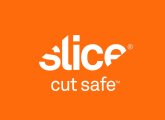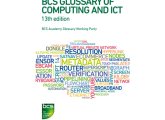In the sixth article of his series of 12, Justin Hancock of DO… explains how you can implement high-quality SRE.
On 1st March 2017, Justine Greening announced her intention to put SRE (now called Relationships and Sex Education) on a statutory footing. From September 2019, all primary schools will be required to teach age-appropriate relationships education, and all secondary schools will be required to teach age-appropriate relationships and sex education.
The reporting of this statement in the news highlighted that SRE must cover sexting, online pornography and sexual harassment. I imagine that many teachers might find this a little challenging, as we already know 4 in 5 teachers don’t feel trained for and confident about teaching SRE.
So reading that they might be required to teach these very difficult topics will only add to their anxiety. Just imagine how difficult it could be to stand in front of a class and talk, with any degree of confidence, about pornography, sexual harassment and sexting.
Then there’s the added pressure that students have also told us they’re sick of SRE being over-simplified, and reduced to simple take-home messages such as ‘porn is harmful,’ ‘sexting is risky’ and ‘sexual harassment is bad’.
On top of all this, the topics delivered are not always relevant to every or even most students in the class - so they’ll feel lectured to about something that doesn’t apply to them. It’s really no wonder one in five students rate their SRE as poor or very poor.
You might be relieved to hear that we think really great SRE needs a different approach – and the Department for Education seems to agree.
Take-home message
SRE is going to become statutory from September 2019. DO… is here to make it easier for you to deliver great SRE which is all about the big topics: love, consent, how we feel about ourselves and our relationships with others. We want to help you make SRE real and relevant for your students.
DO… is about delivering SRE that will enrich and empower students to have relationships with themselves and others that are caring and consensual. This will also prepare them if they do have problems related to porn, sexting or harassment.
We believe really great SRE should allow students to think and talk about the fundamental issues for themselves:
- How they feel about themselves in relation to their place in society, what they think about culture and how they interact with media – then deal with it all.
- Coping with the expectations placed on them by society, particularly gender and sexuality.
- Different kinds of relationships and what makes for a healthy relationship.
- How to communicate their needs and understanding how consent operates.
- Understanding all of the risks of sex and how to reduce those risks.
Taking a step back to deliver this kind of SRE can make it more real and relevant for students, but it may also prevent them and others from having problems related to porn, sexting and harassment in the future.
And the good news is, contrary to the reporting, the main focus at the moment for the Department for Education seems to align with what we think makes great SRE.
We need to be focusing on building relationships based on self-respect, health, consent, tolerance and understanding.
So maybe there’s never been a better time to get planning for the very best statutory SRE?
More Information?
Head to dosreforschools.com and start with the SRE self-assessment and action-plan toolkit. If you’re a teacher you can try our self-reflection activities, which can help you feel more confident about teaching. And don’t forget to check out our resources – all written by leading experts in the field who are accredited by the PSHE Association. They’re all completely free and available now.
For resources and support to make great SRE happen in your school, visit dosreforschools.com.















